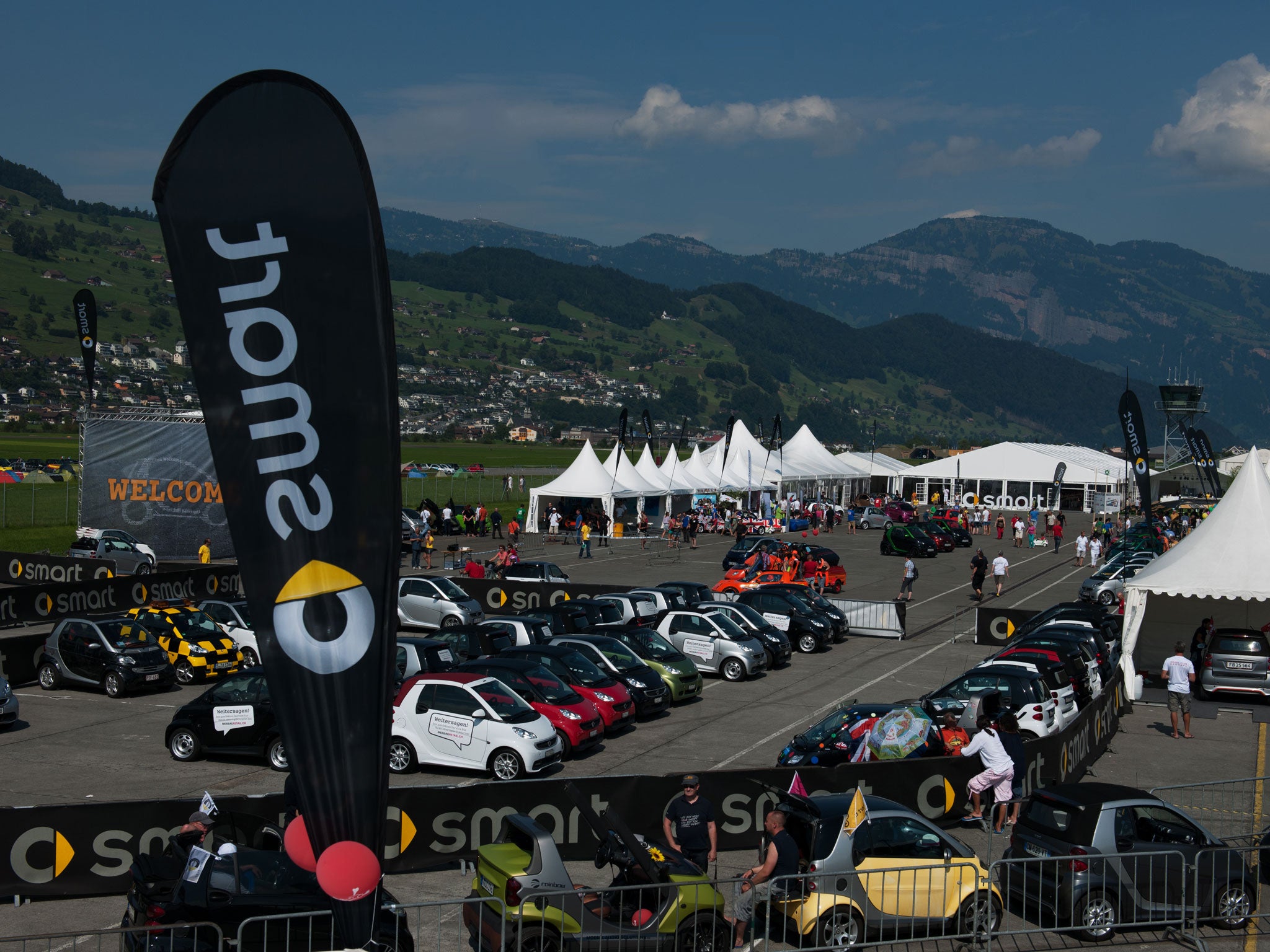Electric-mobility: Turn up, plug in, join motoring's social revolution
Meeting the experts and enthusiasts at an electric car convention, Matthew Bell asks if we should all be doing the Smart thing

Your support helps us to tell the story
From reproductive rights to climate change to Big Tech, The Independent is on the ground when the story is developing. Whether it's investigating the financials of Elon Musk's pro-Trump PAC or producing our latest documentary, 'The A Word', which shines a light on the American women fighting for reproductive rights, we know how important it is to parse out the facts from the messaging.
At such a critical moment in US history, we need reporters on the ground. Your donation allows us to keep sending journalists to speak to both sides of the story.
The Independent is trusted by Americans across the entire political spectrum. And unlike many other quality news outlets, we choose not to lock Americans out of our reporting and analysis with paywalls. We believe quality journalism should be available to everyone, paid for by those who can afford it.
Your support makes all the difference.As recently as five years ago, electric cars seemed like an eco pipe dream. They arrived promising a green revolution, but were expensive and flimsy, and looked unlikely to replace the combustion-engined car. But, as thousands of enthusiasts gathered yesterday for "smart times 13", the world's biggest micro-car convention, industry experts now say that electro-mobility is becoming the norm, not the exception.
Certainly, if the crowds at the Buochs military airport in Switzerland were anything to go by, this is no longer just for the avant garde. T-shirt-wearing men and women of all shapes and ages, including 300 Britons, had travelled from around the world to the Swiss lakes. They camped, they played volleyball, they ate candy floss, and they showed off their pimped rides.
"We may seem like geeks, but it's fantastic fun," said Briony Baker, who had driven with her husband, Robert, 60, from Chichester in West Sussex. "Our children think it's a bit geeky, but what other manufacturer puts on an event like this?" The Bakers came in their rare Crossblade model, of which there are only 25 in Britain. (The lack of a windscreen and roof – or, indeed, any weather protection – could be a reason.) "We wear motorbike helmets. We had a lovely drive over the Alps."
Smart cars celebrate their 15th anniversary this year and, though most are conventionally powered, the theme was electro-mobility. Last year, Smart launched an electric bicycle in Britain, and there are plans for an electric scooter. Almost all car manufacturers are investing in the technology. Can Smart foresee a time when all cars are electric?
"No, I can't," says Dr Annette Winkler, the global head of Smart. "But electric drive will become more and more important for urban mobility, and it's now becoming more affordable with a scheme where you buy the car but hire the battery."
Dr Jorg Beckmann, the chief executive of Swiss eMobility, which campaigns for electric motoring, says cars are becoming part of the public transport network through share schemes. "There is a social change as well as a technological one," he says. "The typical car before had an internal combustion engine and was privately owned. Now, it could be electrically powered and be part of a car-sharing scheme. We are talking about a transformation of the entire transport infrastructure."
Car-sharing schemes have been successfully rolled out in British cities including Bristol, Brighton and Manchester. Though beloved of early-adopters, the problem, says Dr Beckmann, is getting the infrastructure in place for the so-called "late majority". "You need to be able to offer them the same services that are already in place for combustion-engined cars," he says. "In Switzerland, road infrastructure is funded by fuel tax, so that's a problem."
Dr Winkler says the Chinese market is growing. "They are crazy for it," she says, "It's our third biggest market, after Germany and Italy."
Smart times has become a major annual event. Next year's could be in Britain, as Brighton is one of three shortlisted cities. "We'll do something even if we don't win," says James Hemson, 24, who is helping the campaign. "There are thousands of Smart Club UK members. Once you drive one, you realise how fun they are."
Dr Winkler agrees. "Smart has always been a polarising brand. People used to ask, does the world need a car like that? Now we have produced 1.5 million of them, and will soon launch the next generation." Whether electro-mobility will ever replace the conventional engine remains to be seen, but it is certainly here to stay.
Join our commenting forum
Join thought-provoking conversations, follow other Independent readers and see their replies
Comments